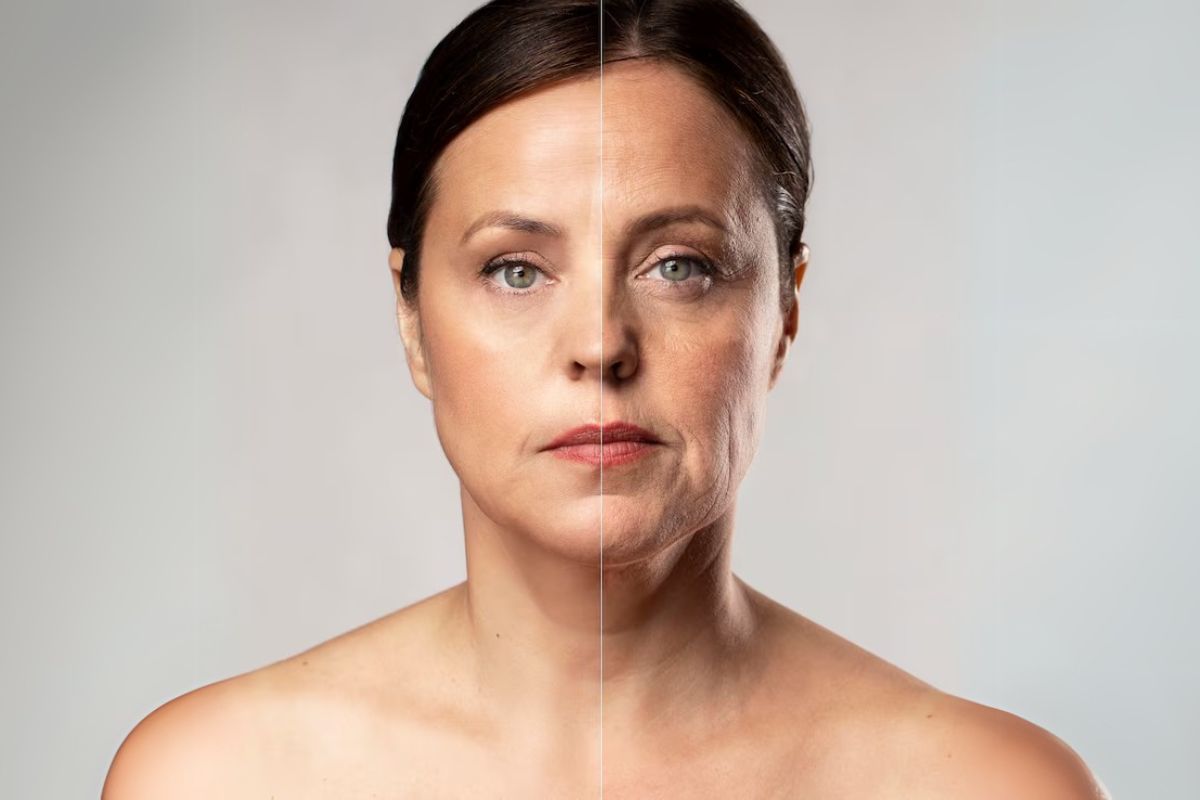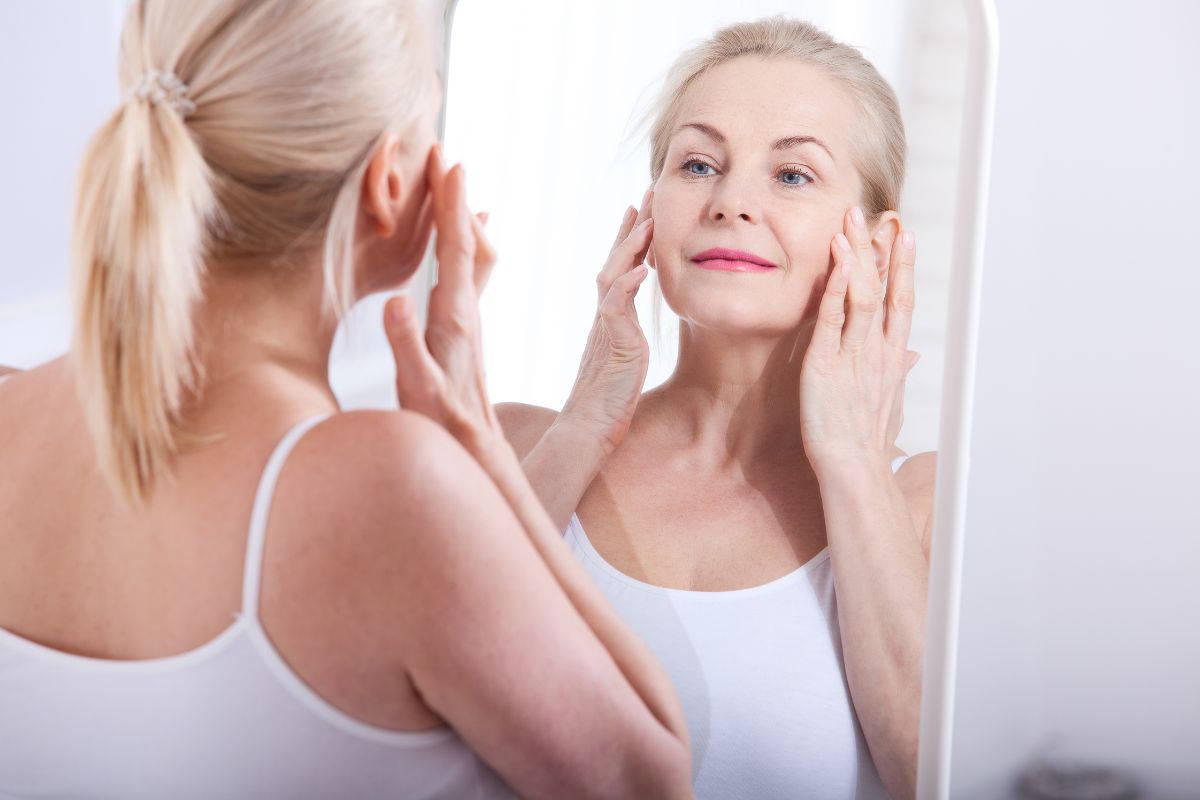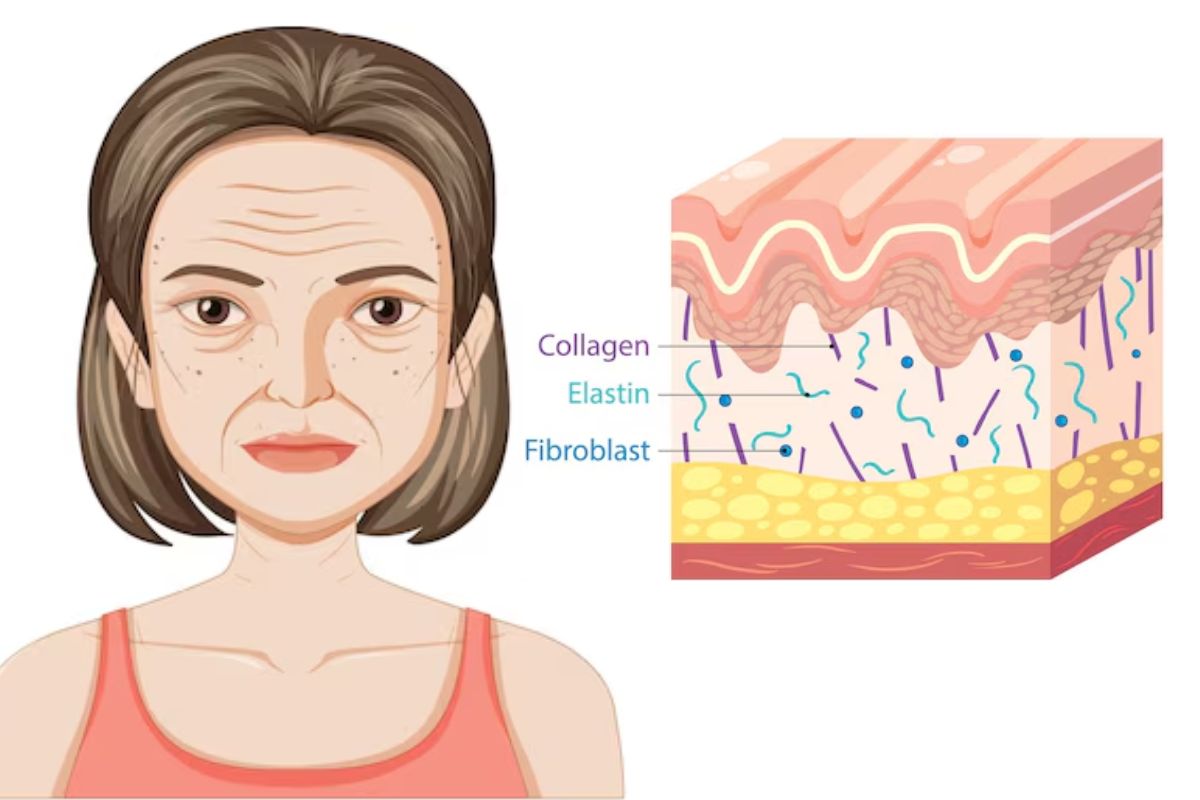Top 5 Signs Your Skin Is Losing Collagen

Collagen is the protein “scaffolding” that keeps skin firm, plump, and smooth. In fact, collagen makes up about 75% of the skin’s dry weight. Starting in our mid-20s, we begin to lose roughly 1% of that collagen each year. Over time, this slow decline causes visible aging. “As you lose collagen over time, this can lead to sagging and thinning of the skin and the development of wrinkles,” notes the Mayo Clinic. In other words, less collagen means skin can no longer “spring back” as easily. Below are five common signs that your skin’s collagen is waning – with expert insight on why it happens and what to do about it.
5 Warning Signs Your Skin’s Collagen Levels Are Dropping
1. Fine Lines and Wrinkles
One of the first signs of collagen loss is that expression lines (like crow’s feet or laugh lines) become deeper and more noticeable. Collagen gives skin its tautness and resilience, so when levels drop, skin can’t smooth out small creases as well. In youth, strong collagen production helps lines to bounce back after a smile or frown. But as collagen synthesis slows, “it’s easier for [wrinkles] to form” when the skin thins and loses elasticity. Dermatologists observe that aging and collagen decline make fine lines appear earlier and more pronounced. Over time these micro-wrinkles can become permanent furrows even when your face is at rest.
To help smooth fine lines, dermatologists often recommend topical retinoids (vitamin A derivatives) or vitamin C serums. These ingredients have been shown to stimulate collagen production in the skin. For example, Harvard Health reports that retinoids “reduce fine lines and wrinkles by increasing the production of collagen,” though it can take several months of consistent use to see results. Broadly, protecting skin with antioxidants (e.g. vitamin C) and avoiding excessive sun exposure can also slow wrinkle formation by preserving collagen.
2. Sagging or Loss of Firmness
Collagen also acts like a built-in skin firming agent. As collagen fibers weaken, you may notice skin beginning to droop. This is especially visible around the jawline (jowls), cheekbones, and under the eyes. In effect, the supportive “scaffolding” is loosening. A loss of collagen’s structure causes the face to look less lifted and more “draped.” One skincare expert explains that reduced collagen produces “visible losses in firmness along with more apparent wrinkles”. In practical terms, sagging skin often looks like a mild “drooping” or less-defined contours.
Sagging skin is a natural part of aging, but you can take steps to counteract it. Wearing broad-spectrum sunscreen and avoiding smoking are key, since UV rays and toxins both break down collagen fibers. Some firming creams use peptides or plant extracts (like cassia) that aim to boost collagen – indeed, experts list peptides and other actives (e.g. hyaluronic acid, antioxidants) as beneficial. Gentle facial exercises or massages may also temporarily improve firmness by stimulating circulation and muscle tone, though sun protection remains the first defense against sagging.
3. Thinner, Less Plump Skin
Another sign of collagen loss is that the skin starts to feel and look thinner. When collagen density falls, facial fat and fluid have less structure to fill out, so cheeks and temples can appear hollow or flat. The skin may even take on a slightly translucent, fragile quality. In fact, one review notes that collagen loss causes skin “to thin and lose elasticity,” so that underlying vessels or tear troughs become more visible.
Thin skin also shows veins and wrinkles more easily. You might notice that your under-eye area creases or dents more than before, or that the bridge of your nose and forehead feel tauter to the touch. To help counteract this volume loss, focus on hydration and gentle plumping. Products containing hyaluronic acid (a moisture-binding molecule) can help skin look fuller and may support collagen function. Some people also use daily moisturizers or serums with collagen-stimulating ingredients (like peptides or vitamin C) to improve thickness over time.
4. Dry, Dull Appearance
Collagen helps skin retain moisture and a healthy glow. When levels drop, the skin can no longer lock in hydration as well. The result is often dry, rough-feeling skin and a loss of youthful radiance. Collagen normally works alongside hyaluronic acid and skin lipids to keep moisture. With less collagen, you may notice skin that looks drier or more parched than it used to. A beauty expert notes that when collagen declines, there is “less hydration, resulting in dry, tired-looking skin”. In short, skin without enough collagen may appear dull or ashen, rather than plump and dewy.
Keeping skin well-hydrated helps preserve a fresh look. Use gentle, hydrating cleansers and thick moisturizers or ointments to support the skin barrier. Ingredients like ceramides, glycerin, and hyaluronic acid can help draw in water. Drinking plenty of water and eating omega-3–rich foods (like salmon and flaxseed) may also improve moisture balance internally. Importantly, still wear sunscreen on dry skin – even dull skin can be sunburned, and sun damage will further degrade collagen.
5. Reduced Elasticity (Less “Bounce”)
Healthy collagen provides skin with a springy quality: when you pinch or lightly pull the skin, it snaps back quickly. With collagen loss, this elasticity diminishes. Skin may feel looser or take a moment to return to shape when stretched. On the face, this means that makeup lines or small indentations (like smile folds) don’t spring out as fast. The Vogue report sums it up: there is “less elasticity and ‘bounce’” in collagen-depleted skin. Over time, this can contribute to a crepe-like texture, especially around the neck, chest, and underarms.
To check elasticity at home, try the “pinch test”: pinch the skin on the back of your hand and release. If it doesn’t flatten out immediately or seems loose, that’s a sign of reduced collagen support. You can improve elasticity by boosting collagen production. Topical retinoids can speed skin cell turnover and collagen rebuilding (see sign #1). Some people also use firming serums with peptides or growth factors. Staying well-hydrated (internally and with emollients) gives collagen something to work with. In practice, a consistent skincare routine with SPF, retinol (in the evenings), and gentle moisturizers can help skin feel more resilient over time.
Why Collagen Declines

Collagen loss happens naturally with age, but certain factors can accelerate it. Key causes include:
- Intrinsic aging: Our bodies simply slow down collagen production as we get older. After about age 25, the dermal cells that make collagen (fibroblasts) become less active, so we lose roughly 1% of collagen per year.
- Sun exposure (photoaging): Ultraviolet (UV) rays are one of the biggest culprits. UVA rays penetrate to the dermis and directly break down collagen fibers, while also triggering enzymes that degrade collagen. In effect, sun damage scars the skin’s collagen network. Dr. Young notes, “The sun’s ultraviolet radiation can destroy collagen in your skin,” so wearing daily sunscreen is crucial.
- Smoking and alcohol: Tobacco smoke contains free radicals and chemicals that destroy collagen and reduce blood flow to the skin. Excessive alcohol can similarly dehydrate skin and interfere with repair. Avoiding smoking (and heavy drinking) is one of the most impactful ways to preserve collagen.
- Poor nutrition: Collagen production requires building blocks like protein (amino acids), plus nutrients like vitamin C, zinc, and copper. Diets low in these nutrients – or high in sugar and processed foods – can weaken collagen formation. Antioxidants (found in berries, citrus fruits, leafy greens) help combat the free radical damage that breaks down collagen.
- Stress and sleep: Chronic stress raises cortisol, a hormone that can degrade collagen over time. Lack of sleep also hinders the skin’s nighttime repair processes. Experts recommend getting adequate rest and managing stress, since these basic “wellness” factors support collagen production.
- Hormonal changes: In women, dropping estrogen levels (during perimenopause and menopause) sharply accelerate collagen loss. Studies show collagen can drop by up to 30% in the first few years of menopause. This hormonal shift thins the skin and reduces its ability to generate new collagen. (While hormone replacement therapy can mitigate some effects, skincare and lifestyle are still important for all age groups.)
These factors together explain why collagen declines even faster than the 1% per year baseline. In practice, everyone’s experience varies – genetics plays a role too. But by minimizing “accelerators” like sun and smoking, you can slow the process.
How to Slow or Mitigate Collagen Loss

You can’t stop aging, but dermatologists agree there are proven steps to support collagen and keep skin healthier for longer. Key tips include:
- Apply broad-spectrum sunscreen every day: UV protection is non-negotiable. A daily SPF 30+ shields skin from collagen-damaging UV rays. Reapply sunscreen on exposed skin especially during peak sun hours.
- Use collagen-boosting skincare: Topical retinoids (like tretinoin or retinol) are widely regarded as the gold-standard anti-aging treatment because they stimulate collagen synthesis. Likewise, antioxidant-rich serums (e.g. vitamin C) protect existing collagen and support repair. Products with peptides, niacinamide, and hyaluronic acid can also improve skin texture and hydration.
- Quit smoking and limit alcohol: Avoiding tobacco is one of the most important collagen-saving measures. If you smoke, seek help to quit. Keep alcohol in moderation, as excess booze can dehydrate skin and interfere with collagen maintenance.
- Eat a healthy, protein-rich diet: Collagen is made from amino acids, so include lean proteins (chicken, fish, beans, eggs) in your meals. Also consume plenty of vitamin C (citrus fruits, strawberries, peppers) and antioxidants (berries, leafy greens) to fuel collagen synthesis and fight free radicals. Bone broth, gelatin, or collagen peptide supplements are popular (early studies suggest they may improve skin elasticity), but a balanced whole-food diet is the foundation.
- Stay hydrated and moisturize: Drinking water keeps cells hydrated from within. Using moisturizers (especially those containing hyaluronic acid or glycerin) helps lock in that hydration. Well-hydrated skin looks plumper and may better preserve elasticity.
- Sleep well and manage stress: Aim for 7–9 hours of quality sleep per night. During deep sleep, skin goes into repair mode, regenerating collagen. Manage chronic stress through relaxation techniques, since high stress hormones can break down collagen over time.
- Exercise regularly: Physical activity boosts circulation and overall health, indirectly benefiting the skin. Exercise can also improve hormonal balance and antioxidant defenses, which support healthier collagen levels.
Each of these habits addresses a factor that influences collagen. For example, avoiding UV damage and smoking removes major collagen threats, while retinoid use and a nutrient-rich diet actively promote collagen production.
Finally, some people explore advanced treatments under a dermatologist’s care. Procedures like microneedling, laser therapy, or radiofrequency can stimulate collagen regeneration in targeted areas. While these often require professional supervision, daily home care (sunscreen, diet, retinoids) is the cornerstone of prevention.
Collagen loss is a normal part of aging, but it doesn’t mean you’re powerless against it. By watching for these signs (fine lines, sagging, thin/dry skin, etc.) and adopting collagen-preserving habits, you can keep your skin looking firmer and more youthful for longer. In short, protect your skin’s collagen by protecting your skin, and the glow and structure of youth will follow.







